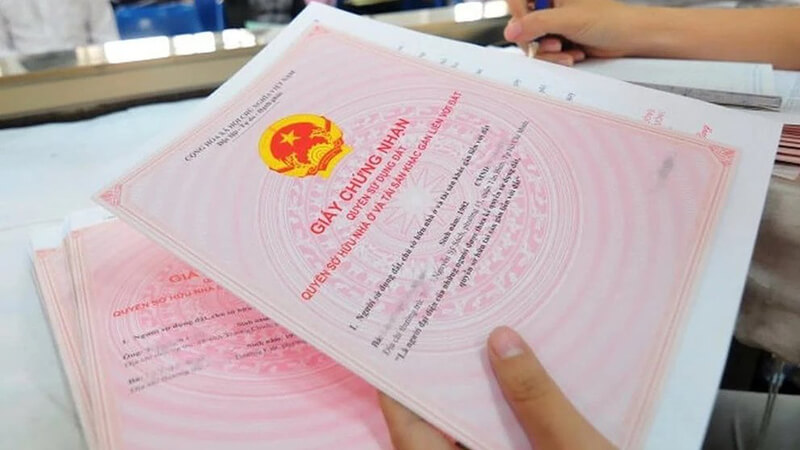The proof of ownership of a single property brings enormous benefits, including tax exemptions for individuals on personal income when trading real estate. But do you know the procedure for proving single-home ownership? Let’s find out together.
1 Requirements for the procedure for proving single-home ownership
Article 3 of Circular No. 111/2013/TT-BTC and Article 4 of Decree No. 65/2013/ND-CP stipulate the cases for personal income tax exemption when transferring real estate, which must simultaneously meet the following three conditions:
First, at the time of transfer, the individual must own only one house or have the right to use only one land lot (including the case of having a house or work attached to that land).
 Land Use Right Certificate, House Ownership and Other Assets Attached to Land
Land Use Right Certificate, House Ownership and Other Assets Attached to Land
The determination of ownership of the house, land use right, will be based on the Certificate of Land Use Right, House Ownership, and Other Assets Attached to the Land.
Second, by the time of the transfer, the individual must have owned the house or land use right for at least 183 days.
In other words, from the date of issuance of the Certificate of Land Use Right and Ownership to the date of transfer, a minimum of 183 days must be ensured.
 Individuals must own the house or land use right for at least 183 days
Individuals must own the house or land use right for at least 183 days
In cases where the certificate is reissued or replaced under the law, the time of determination of ownership of the house or land use right will still be calculated from the date of issuance of the old certificate (before being reissued or replaced).
Third, the whole house and land use right must be transferred. If an individual has the sole right or joint right to own a house or land but transfers only a part of it, that part will not be tax-exempt.
2 Documents for the procedure for proving single-home ownership
The proof of single real estate ownership according to the above three conditions will be declared by the transferring individual and he/she will be responsible for it. If the authorities detect any false declaration, the individual will be subject to tax collection and handled for tax law violations.
The dossier of proof of single real estate ownership includes:
- Tax declaration dossier for individuals with their signature, committing to be responsible for the truth of the declaration.
- Copy of the certificate of land use right, papers certifying the ownership of the house or works on the land, and the individual’s commitment of responsibility attached to this document.
- Real estate transfer contract.
- Papers as a basis for determining the subjects entitled to tax exemption in case of real estate transfer with personal income tax exemption.

3 Details of the procedure for proving single-home ownership
To carry out the procedure for proving single-home ownership, you need to follow the following steps:
If your locality has not implemented the one-door mechanism, please submit the dossier directly to the land registration office where the transferred real estate is located.
 Submit the tax declaration dossier together with the real estate transfer dossier at the Tax Department
Submit the tax declaration dossier together with the real estate transfer dossier at the Tax Department
Hopefully, through the above sharing, you now know the procedure for proving single-home ownership. If you have any need, please follow the above guide.
































